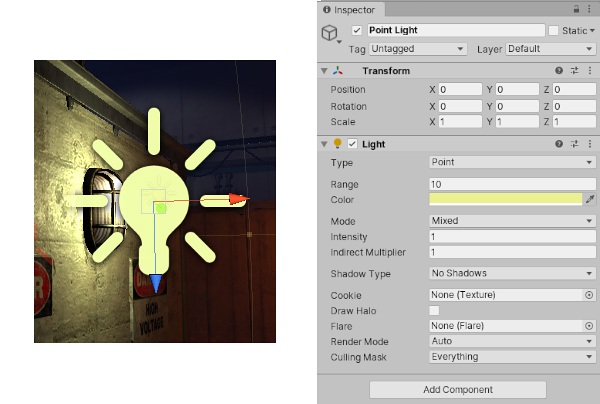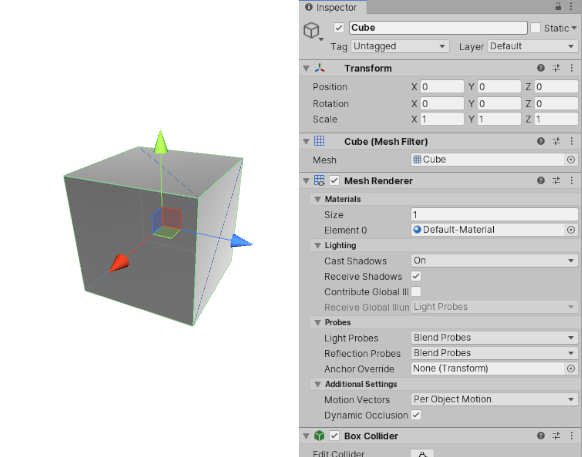GameObjects
The GameObject is the most important concept in the Unity Editor.
Every object in your game is a GameObject, from characters and collectible items to lights, cameras and special effects. However, a GameObject can’t do anything on its own; you need to give it properties before it can become a character, an environment, or a special effect.

GameObjects are the fundamental objects in Unity that represent characters, props and scenery. They do not accomplish much in themselves but they act as containers for Components, which implement the functionality.
To give a GameObject the properties it needs to become a light, or a tree, or a camera, you need to add components to it. Depending on what kind of object you want to create, you add different combinations of components to a GameObject.
Unity has lots of different built-in component types, and you can also make your own components using the Unity Scripting API.
For example, a Light object is created by attaching a Light component to a GameObject.

A solid cube object has a Mesh Filter and Mesh Renderer component, to draw the surface of the cube, and a Box Collider component to represent the object’s solid volume in terms of physics.

Детали
A GameObject always has a Transform component attached (to represent position and orientation) and it is not possible to remove this. The other components that give the object its functionality can be added from the editor’s Component menu or from a script. There are also many useful pre-constructed objects (primitive shapes, Cameras, etc) available on the GameObject > 3D Object menu, see Primitive Objects.
Since GameObjects are a very important part of Unity, there is a GameObjects section in the manual with extensive detail about them. You can find out more about controlling GameObjects from scripts on the GameObject scripting reference page.
- 2017–08–01 Page amended